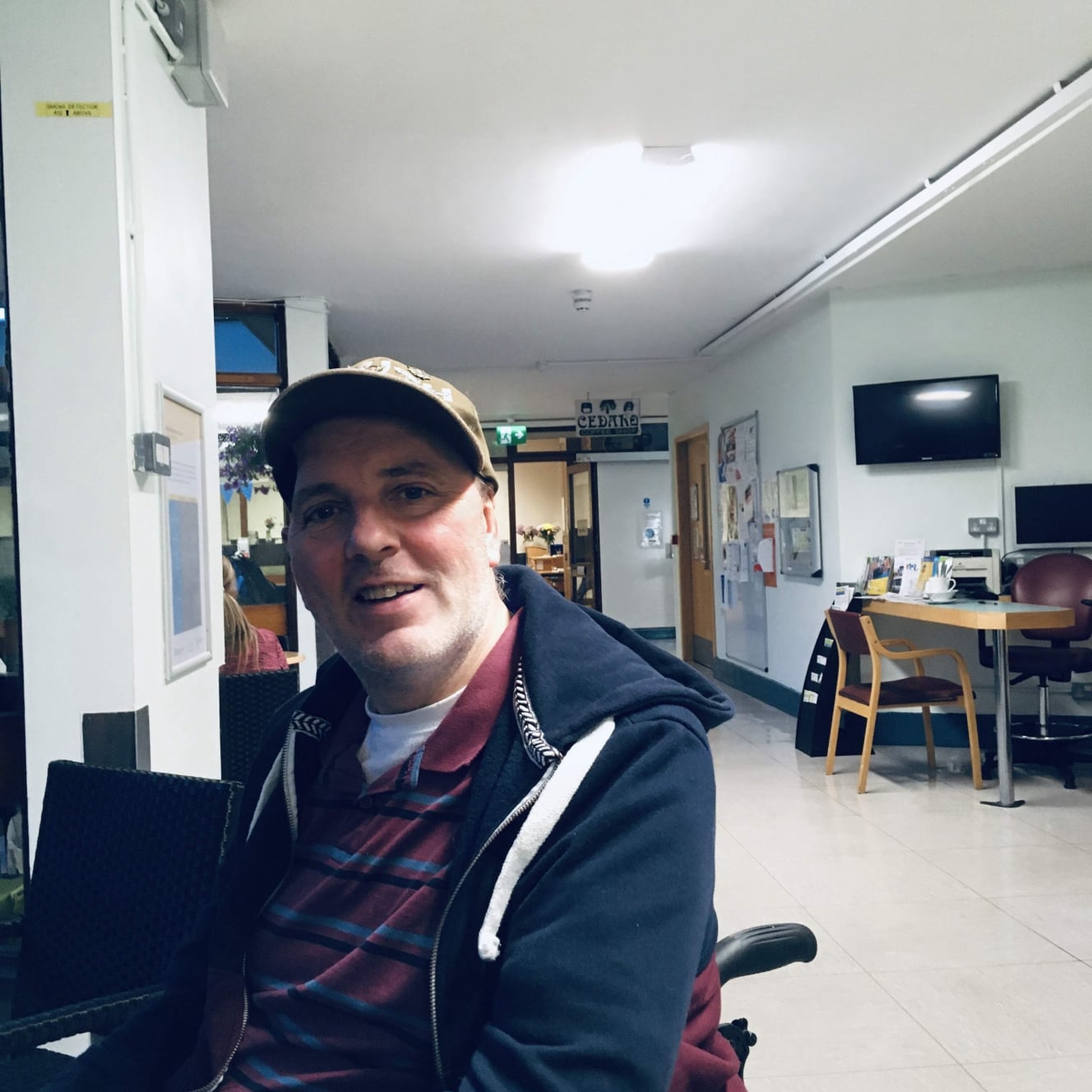
Stephen Ward at the the(NRH)in Dun Laoghaire! (2019)

Stephen Ward at the the(NRH)in Dun Laoghaire! (2019)
Below is an account of my episode which I am very lucky to have Survived.
writing here serves both has a general interest/ record and creating such is indeed for me of therapeutic value. "Enjoy the read"!
After collapsing in the Bathroom on the Morning of the Stroke,
I was Airlifted to a Head trauma Clinic in Munich following an MRI in the Klinikum Freising which collaborated the initial Diagnosis. conducted by My Wife Heide who had quickly established that I was F.A.S.T Positive immediately before the Ambulance arrived.
How do you recognise a stroke?
Stroke symptoms include:
Numbness, weakness, or paralysis on one side of the body
Slurred speech, difficulty thinking of words or understanding other people
Confusion
Sudden blurred vision or sight loss
Being unsteady on your feet
Act Fast Cal112 / 999
Time is Brain!
a stroke is a serious life-threatening medical condition that happens when the blood supply to part of the brain is cut off.
Air Ambulance Christoph 1
Munich;
Neurosurgery clipped the Bleed and I was slowly Stabilised, and placed into an induced Coma on 31.05.2016
Sensation disorders I Can only perceive sensations in individual areas of one half of the body to a limited extent or not at all. I only have20% MOBILITY and can only walk short distances with assistance, I use a wheelchair and have vastly reduced function in my left upper limb.🧑🦽♿♿
Neglect causes me to behave as if one side of the outside space (including my own body) is not present this a effects my left side (due to damage in the right hemisphere of the brain). Things in the affected half of the space are neglected, i.e. simply ignored, as if they did not exist. I learnt that The sensory stimuli are received by the body, but not consciously perceived. I usually do not even notice this. or anything on the left which is for me empty Space. This is improving and did initially require a lot of Therapy
Verbal communication can be impaired in different ways after a stroke So I count myself Lucky once again,. I did have some issues the speech area, or more precisely, a mild Aphasia: With this speech disorder, I could hardly make My thoughts known and became quickly frustrated often attempting to circumnavigate speech with mime and pencil on paper.
Aphasia
Aphasia is an acquired language disorder that occurs after damage to the language-dominant side of the brain (usually the left). Among patients with a first-time stroke, about 30 percent have aphasia.